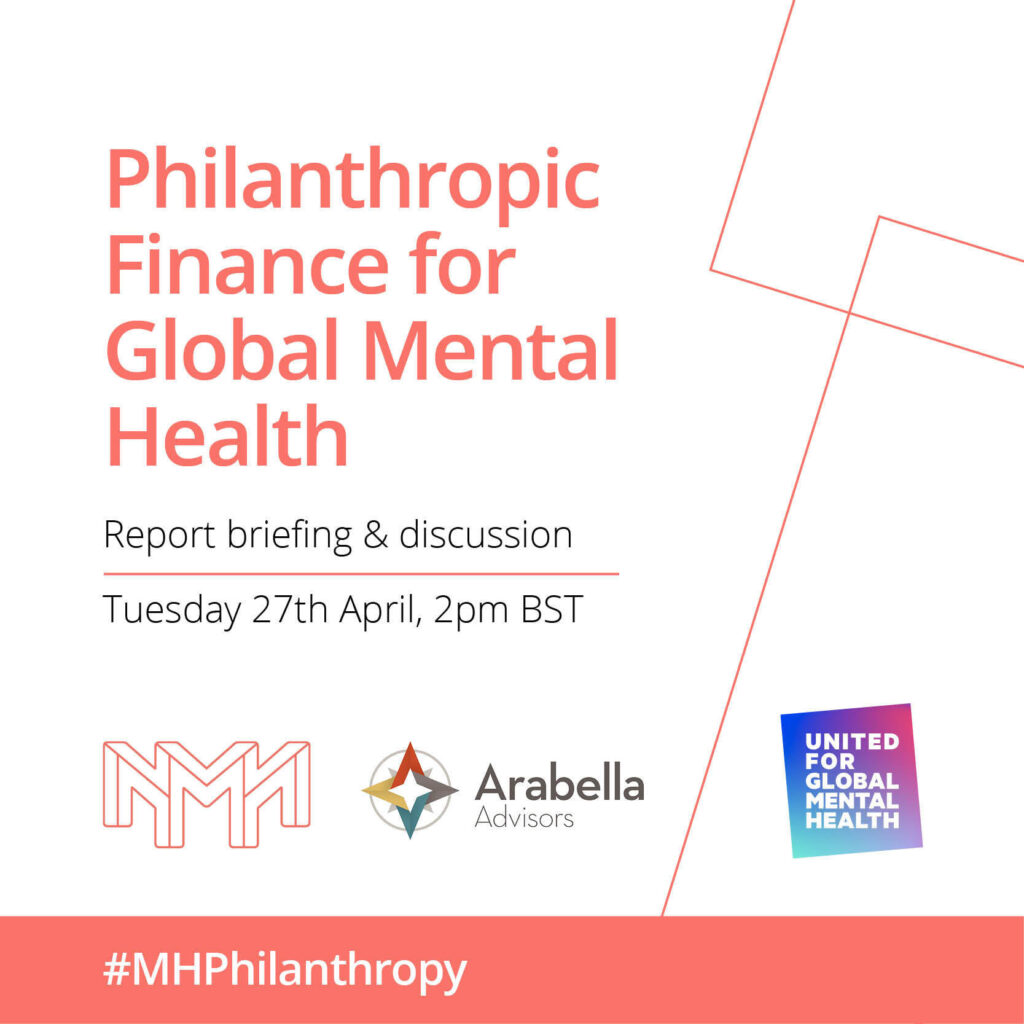Despite growing attention on the world stage in the wake of Covid-19, global mental health remains severely underfunded. We have a moment of opportunity to come together to think afresh about how we can use heightened awareness and momentum now to drive systemic change.
On Tuesday 27th April, a 1 hour online discussion took place on the critical role that philanthropy can play in catalysing public spending and strengthening collaboration among mental health funders.
To mark the launch of briefing, Kate Roberts (Maverick Collective), Raj Mariwala (Mariwala Health Initiative), Alan Court (Senior Advisor, WHO Ambassador Global Strategy and Health Financing), Jon Myer (Associate Director of Orygen Digital, member of The Myer Foundation) and Taha Sabri (Taskeen) joined the discussion to discuss the stigma around mental health funding, the cost on the pandemic and what mental health has to learn from other movements. The full recording of the webinar is available here.
Our initial recommendations include:
- Encouraging philanthropists to revisit mental health. Just as we can nearly all find ways to do our bit for the planet, so there is a mental health angle to so much of what we already do – we just need to find the hook that is relevant for us. Advice on how to do this is growing – for example, this recent report from Lombard Odier. Metrics and data are also improving, led by the work of Countdown Global Mental Health 2030 and the International Alliance of Mental Health Researchers.
- Helping funders continue to learn more about global mental health and the needs of the sector to identify where value can be added. The WHO’s Mental Health Atlas is a powerful tool that provides national level data, and should be utilised as a starting point.
- Prioritising investment in areas in which philanthropy is uniquely positioned to fund. Philanthropists are more able to take risks than other funders, and in doing so, can catalyse public and private follow on funding.
- Integrating philanthropic financing into larger financing packages. This can help to catalyse new, larger and coordinated investments for mental health.
- And finally, facing the challenges of philanthropic funding presented head on to augment impact. There are complex questions to ask around transparency, trust and how we design interventions that engage persons with lived experience and put community needs first.

